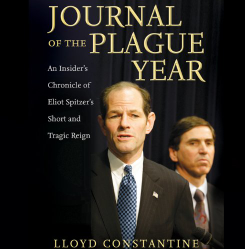Virtually everyone pondering Georgia’s reopening of nail salons, body arch studios, fitness centers, barber shops, cosmetologists, hair designers, massage therapists, gyms and bowling alleys on April 24 believes that this action by Governor Brian Kemp will result in some additional COVID-19 infections and deaths. That is, above what would have prevailed had these resumptions of business occurred later – in accordance with the virtually unanimous weight of public health advice. We are certain that Kemp understands this as well.

Brian Kemp
The question for the Ethicist in Residence here at HL, and the one that dwells in all of us, is how to think about this and what to wish for and to what end? The Georgia dilemma is just one of the ethical conundrums assaulting us daily. Not the standard ones like who gets the scarce ventilators. No, like the one that crossed most minds as British PM Boris Johnson (who had adopted a flippant Trumpish dismissal of the imminent calamity) entered the ICU and for a time was close to death.
The world will now focus on Georgia and attempt to measure the incremental disease and body count and with much greater difficulty (because of temporal delay) the pluses in resuming employment and “normal” activity. These have many positive effects, including on health. If 1, 10, 100, 1000, 10,000 more Georgians, and those in contact with them, die in the near term because of Kemp’s action, and those consequences are well documented, it might inform the choices made in other states now and in the future. That might save an even greater number of lives than those lost in and around Georgia. Carefully and prayerfully considering that and as important thinking about what we want to happen and why is as imperative as donning your mask.

Reinhold Niebuhr
As the pandemic has operated we have heard steadily from many electeds that shutting down the economy is too high a price to save some imprecise number of lives. Trump’s line about the cure being worse than the disease is all about that calculus. Texas Lieutenant Governor Dan Patrick was most explicit on March 23, 2020 when with all the curves still sloping upward he said “No one reached out to me and said ‘as a senior citizen, are you willing to take a chance on your survival in exchange for keeping the America that all America loves for your children and grandchildren?’ And if that’s the exchange, I’m all in.”

Grover Cleveland
Patrick’s much maligned statement embodies not simply an economic opinion but an ethical one as well. In thinking about the incremental Georgia deaths that we’ve arbitrarily ranged from 1 to 10,000 and especially about that lowest number: 1, the ethicist is reminded of what Grover Cleveland reputedly said to someone who had challenged an assertion Cleveland had made in a speech. At the dedication of a children’s hospital, Cleveland said that its great cost would be worth it if “just one child’s life was saved,” when challenged by the listener Cleveland responded “of course that’s true if it’s your child or my child.”
The platitude we hear consistently these terrible days is that the post pandemic world will not be the same as before but can be a lot better – in ways the commenter advocates, e.g., environmentally or in terms of public health or racial and economic justice. One important way that the post plague world can be much better or terribly worse involves how, right now we all think about and act on these ethical questions.



I reject the lady or the tiger trade off. Show me that this is an either/or proposition, and then we can talk.
Professor Farmer , the point is that there is no such choice with one possible outcome the Tiger and another where the Lady awaits. Behind both and all doors in dealing with the pandemic await both bad and good consequences – as for example the short term increase in deaths that opening nail salons etc in Georgia will produce and the longer term positive results including on health that allowing business and other “communal” activities to resume will produce. The point is how we think about these choices and whether we , including the decision makers properly understand and include the ethical consideration as we move ahead.